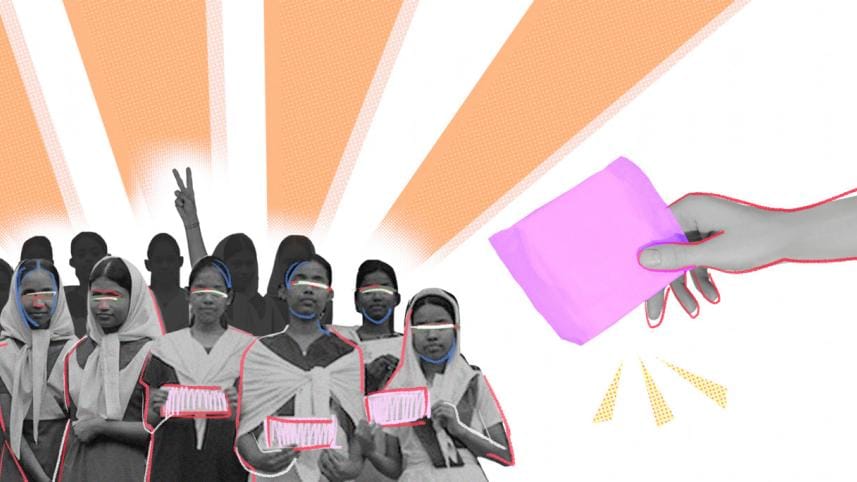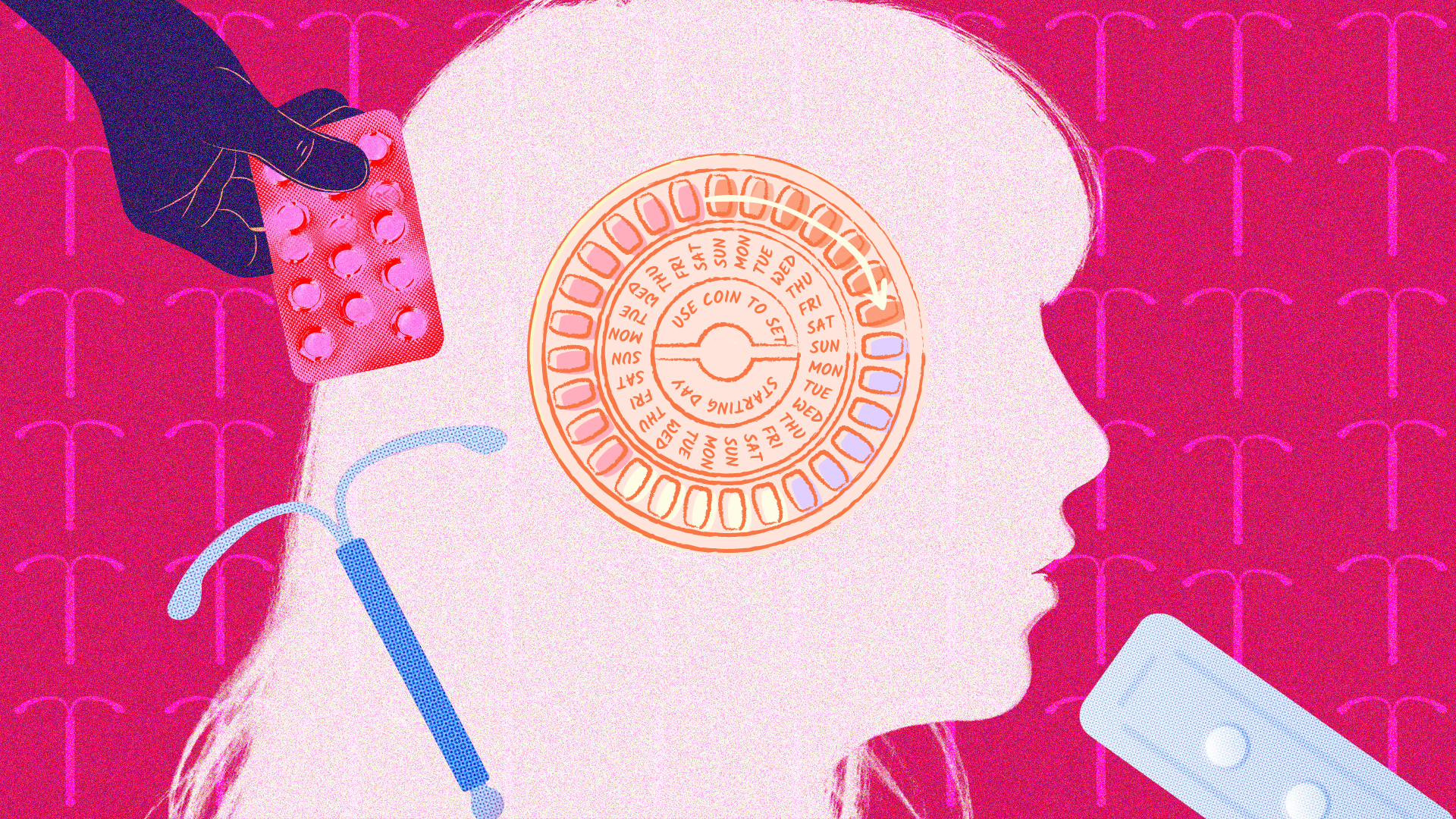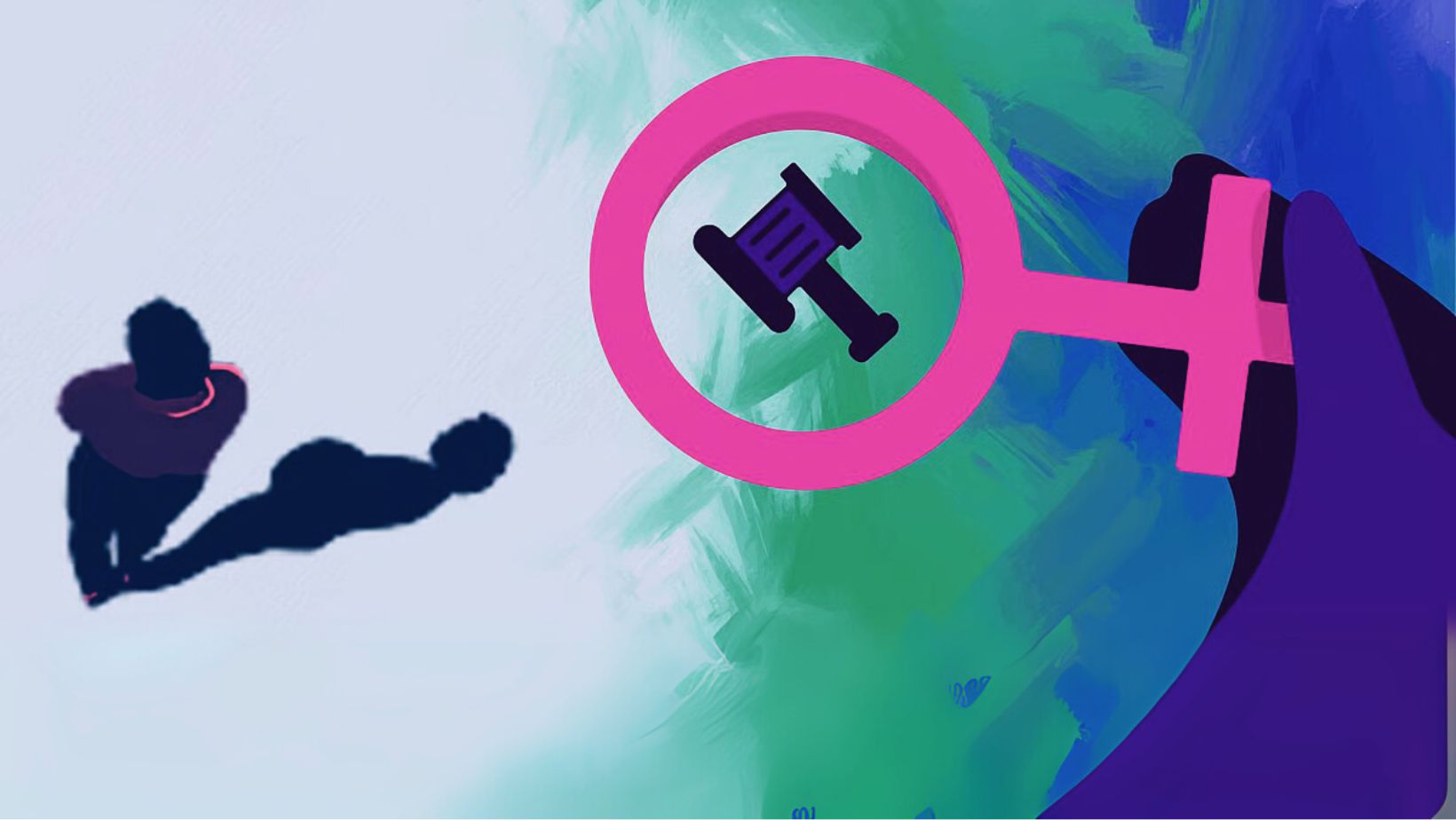No equality without menstrual dignity

Menstruation, once shrouded in silence, stigma and taboo, has now gained global recognition as a critical human rights concern. This shift in perspective has highlighted that menstrual health is not merely a hygiene issue. In Bangladesh, a nation striving for gender equality amid its development journey, the pursuit of dignified menstrual health for all is fraught with persistent challenges.
In 2005, the World Health Organization (WHO) and UNICEF introduced the concept of menstrual hygiene management (MHM). By 2022, the UN Human Rights Council (UNHRC) established a link between menstrual hygiene and menstrual health. This broader understanding embraces the physical, psychological and social dimensions of menstruation, demanding access to information, education, products, WASH (water, sanitation, and hygiene) services, empathetic care, and an environment free from shame and discrimination.
Attaining menstrual health, as defined by global health and human rights bodies, is a multifaceted endeavour. It involves ensuring that individuals have access to accurate, age-appropriate information, supportive facilities, and affordable materials for bodily care; timely diagnosis and treatment for discomforts; a stigma-free and respectful environment; and a mindset free from taboos, enabling full participation in all aspects of life without exclusion or discrimination due to menstruation.
This complex issue is intrinsically linked to a range of human rights, including access to water and sanitation, dignity, health, education, equality, sexual and reproductive rights, labour rights, and participation in public life. Furthermore, addressing menstrual health directly contributes to several of the Sustainable Development Goals (SDGs).
Bangladesh has taken commendable steps to embed human rights principles within its governance. The constitution upholds gender equality, health, non-discrimination, participation and inclusion, and sustainability in several of its articles. The Ministry of Health and Family Welfare oversees the health of women and girls, as well as the availability, accessibility, quality, and affordability of menstrual products, often working in conjunction with the ministries of commerce and women and children affairs.
Effective menstrual management depends on access to and use of safe water, safely managed sanitation and hygiene services, as well as the availability of affordable products. Government circulars even encourage the establishment of separate WASH blocks for girls and boys in schools. Policies aim to ensure access to safe water and sanitation services at an affordable cost, including public latrines in schools and public places, and to expand access for all.
Educational policies play a pivotal role in promoting menstrual hygiene management. National strategies focus on developing sanitation facilities that integrate menstrual hygiene management and support strategic leadership for a national platform, ensuring that everyone is informed and aware of the importance of MHM.
In schools, government circulars have mandated the installation of improved, gender-segregated toilets in secondary and higher secondary institutions, including waste bins, soap, and water for female students. These circulars also include a vital stipulation: female teachers should discuss menstruation with female students and ensure the availability of sanitary napkins.
In the workplace, while the National Menstrual Hygiene Management Strategy 2021 notes that WASH facilities are often not gender-friendly in most government offices—lacking proper maintenance, soap, bins, and washing amenities—it aims to ensure that MHM facilities are accessible in all settings, including workplaces, prisons, industries, and commercial spaces.
Educational programmes, sometimes in collaboration with international partners, aim to provide school-based interventions on menstrual management. National strategies also seek to strengthen menstrual health education in school curricula for both boys and girls, including students who have dropped out of school. In health institutions, strategies seek to ensure accessible MHM facilities and equip healthcare outlets to provide services in "woman-friendly units."
The affordability of menstrual products and sanitation facilities remains a significant challenge. While products need not always be free, economic reasons should never deprive anyone of dignity or the ability to participate in daily activities. Menstrual products are essential items and therefore should ideally be classified as such for tax purposes, exempting them from VAT and making them more affordable.
There are limited laws or regulations in Bangladesh specifically ensuring the affordability of menstrual products. Although tax exemptions on raw materials for sanitary napkin production were intended to improve affordability, their actual impact depends on whether manufacturers pass those cost savings on to consumers. Concerns have been raised that these tax cuts may have primarily benefited a dominant company, while VAT continues to be charged.
What is needed is a cohesive, rights-based approach: clear legal frameworks, sustained investment in infrastructure and product access, rigorous quality standards, and inclusive public education. By treating menstrual health as a core issue of dignity and justice, Bangladesh has the opportunity to set a powerful example in the region and beyond.
Fayazuddin Ahmad is policy and advocacy lead at WaterAid Bangladesh and coordinates the Menstrual Health and Hygiene Management (MHM) Platform.
Views expressed in this article are the author's own.
Follow The Daily Star Opinion on Facebook for the latest opinions, commentaries, and analyses by experts and professionals. To contribute your article or letter to The Daily Star Opinion, see our guidelines for submission.




 For all latest news, follow The Daily Star's Google News channel.
For all latest news, follow The Daily Star's Google News channel. 

Comments